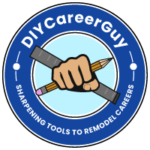So you’re looking for a new gig. Whether your current position was axed or you’re planning to change your career direction, who do you turn to? Would you feel comfortable tapping into your current career network for possible leads? Do you even know how to approach them or what to say to them? Building a solid professional network with opportune connections is one of the many keys to positioning yourself for long-term career success.
Who should be in your professional network?
Stating the obvious with this one – those at the top of your network should be the people you work with, or have worked with in the past. Your peers are keenly aware of your skill set, work ethic and can speak candidly on your behalf. When you leave a job, ask for their personal emails so you can stay in touch even if they move on. This simple request can be the key to stellar letters of recommendation, or life-changing connections. Ideally, we’d all love to pal around professionally with the likes of The Rock, Sheryl Sandberg, or Richard Branson, but let’s start with some basics.
Your career network should also include copious amounts of professionals outside of the workplace (see list below).
What to say to your network when you are job hunting
Everyone should be aware of your job search. Scream it from the mountaintops (preferably not literally). This is the only foolproof way to maximize your exposure to potential job leads. When you speak to people, whether it’s over a coffee or email, be very forthright about your job search and what positions you’re seeking. Give them a list of job titles, companies of interest, and geographic locations so you can hear them saying “help me, help you!”

Cast a wide net when building your network
Life is FULL of unexpected, chance encounters. The bigger your network, the better the odds are you’ll meet someone who can help you land your next job. Networking is not always about who you know… it’s also about who THEY know. Think in terms of “six degrees of separation” or the more commonly known “six degrees of Kevin Bacon”. This exponential power of human connection can lead to some pretty kick-ass introductions and job opportunities. You just have to be willing to put yourself out there.
“May the holes in your net be no larger than the fish in it.”- Irish Blessing
Solid networks offer reciprocation
The key to sustainable networking is not only being able to reach out to your contacts but being able to provide advice to them when you see an opportunity to help. The more you help others, the more likely they are to think of you and help in your time of need.

So, what should my network look like?
Top 10 people that should be in your network:
1. Mentor: A person who has reached the level of success you aspire to have.
2. Coach: Someone that will help with critical job decisions and offer very honest, objective opinions.
3. Industry Insider: Someone with expert info or access to same in your career field. This persons can keep you up to date on the latest industry trends.
4. Mars Rover: This is a colleague outside of your field who always has buzz about the next big thing in business.
5. Matchmaker: A person with access to boatloads of people, resources and information.
6. The Dreamer: Everyone loves someone they can dream along with. No matter how “out there” your latest ideas are, this person will help you brainstorm new ideas and push you to attain them.
7. Realist: You always need a wise friend to help you keep it real. They will challenge you when your expectations exceed your effort.
8. The Steve Jobs: Visionaries inspire us with their journey. These people help you envision an actual plan to reach your goal.
9. Sister From Another Mister/Brother From Another Mother: This is a person you can share the wins and losses with and that will root for you, even through your toughest times.
10. “The Voice” Contestant: This is someone you can coach and mentor. Someone you can help shape and guide based on your experiences.
Takeaway: Diversify your network by building as many of these professionals as possible into your network. Seek to add people from different industries, age groups, educational backgrounds, life-views, ethnic groups, etc. If you’re a marketing professional and your network only includes other marketers, you’re at a disadvantage.
Action: Are you serious about building a rock-solid network that can actually provide real results? Hammer this advice into your regular networking efforts. Evaluate your current network and start filling in the gaps.
Related: 10 ways to Crush It at Your Next Professional Event

